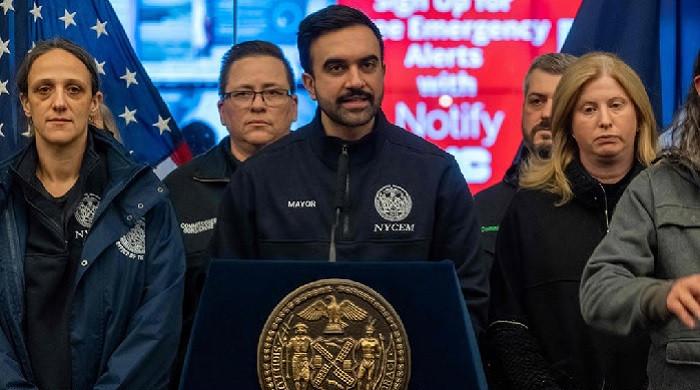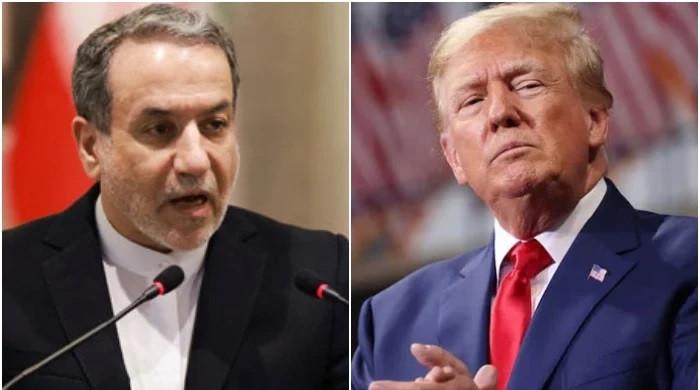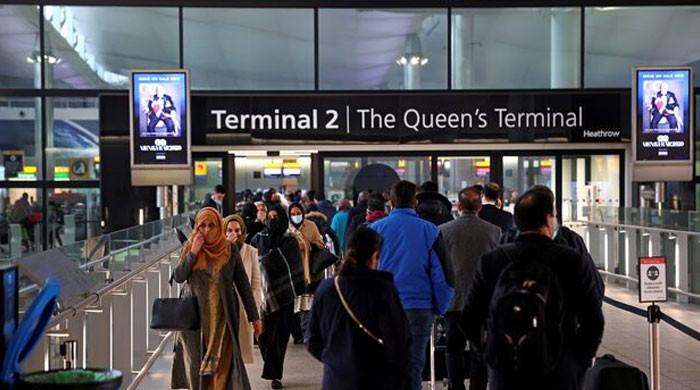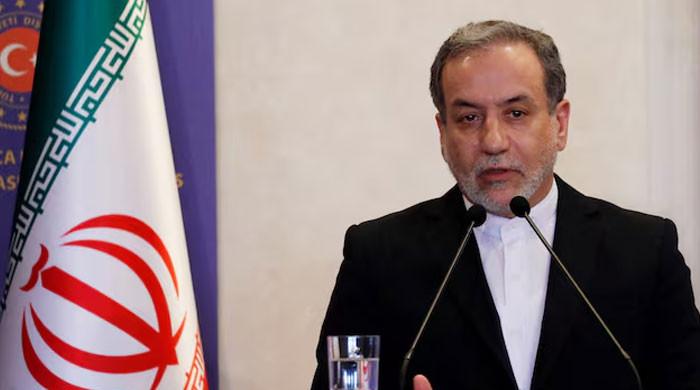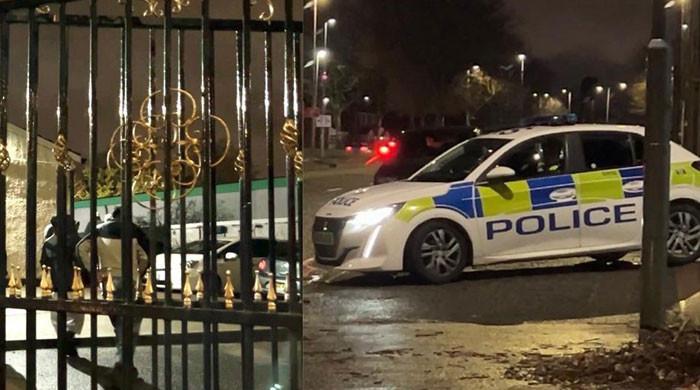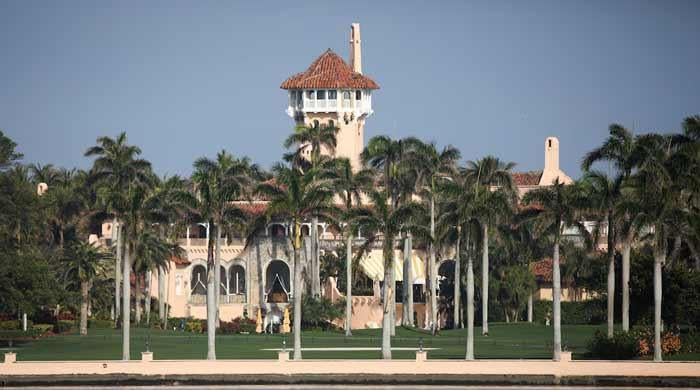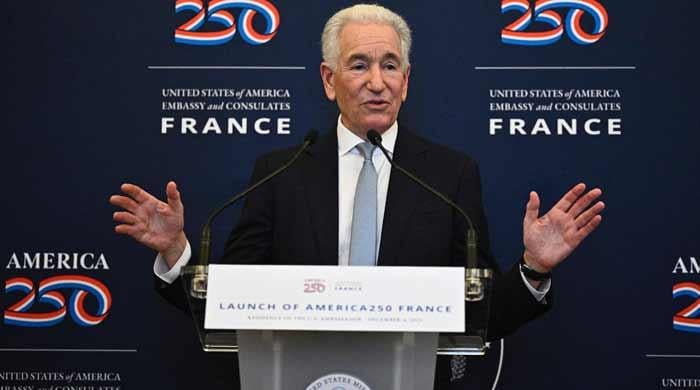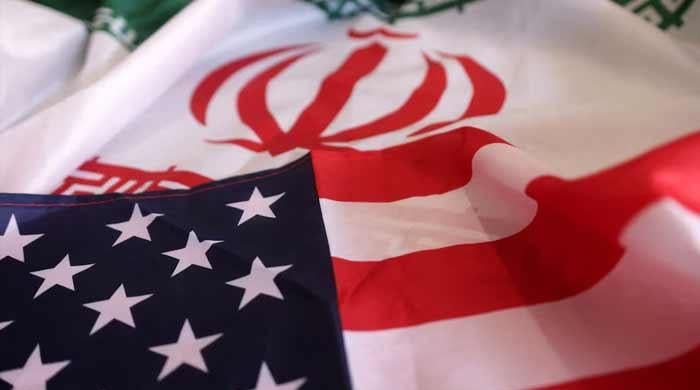Pakistan will recognise Taliban govt when it honours pledge to uphold human rights: envoy to US
"We have basically laid out our expectations, which is that we want the rights of everyone to be respected," says Asad Majeed Khan
September 14, 2021
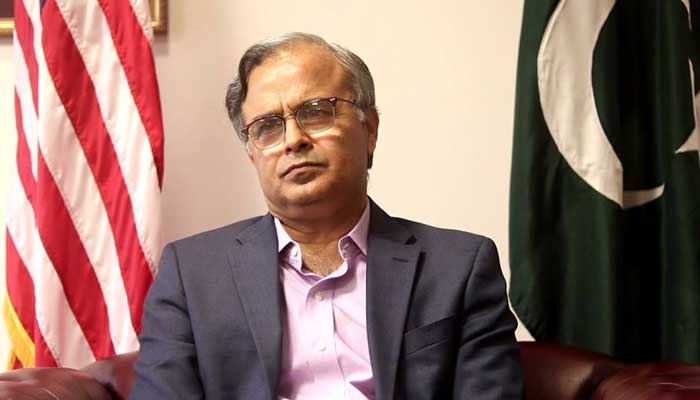
- Asad Majeed Khan says Pakistan has laid out its expectations, that everyone's rights must be respected.
- Envoy to US adds that "instead of indulging in give-and-take on these issues, right now what’s really important is to avert a humanitarian crisis".
- Ambassador says Pakistan's role as ally in decimating Al Qaeda, and in Afghanistan peace negotiations must be considered.
WASHINGTON: Pakistan is monitoring the ability of the new Taliban government in Afghanistan to deliver on the commitments and promises to uphold human rights that they have made to the international community before extending recognition to it, Ambassador Asad Majeed Khan has said.
"Whether the Taliban actually abide by those (commitments) is their call," the Pakistani envoy said in an interview with The Washington Diplomat, an independent monthly newspaper that serves the diplomatic community in the US capital.
"But we have basically laid out our expectations, which is that we want the rights of everyone to be respected," he said, when asked under what conditions Pakistan would recognise the Taliban government.
"We want that Afghani territory not be used against any other country, including Pakistan. We want human rights and women’s rights to be preserved."
At the same time, Ambassador Khan said Pakistan believes "instead of indulging in give-and-take on these issues, right now what’s really important is to avert a humanitarian crisis."
"Right now," he said, "what’s really important is to basically not let things fall apart. Clearly, there is a new reality, which is a government under the Taliban."
"The international community has to make a choice: between engaging—and that doesn’t necessarily mean recognition—and abandonment."
Replying to a question about Islamabad-Washington ties, he said since 9/11, Pakistan has essentially been seen through the prism of Afghanistan.
"I can tell you that today, we are together on the same side in terms of our interests and expectations in Afghanistan: The US wants to see the conflict end; that’s also what we want. And we would like to see that the gains Afghanistan has made over the last few decades are preserved."
Asked about the impression in the US that Pakistan supported extremist groups, Ambassador Khan said a deep look was required into the facts.
"Pakistan has been a close partner and ally in decimating Al Qaeda, and in bringing about the peace negotiations (on Afghanistan)," he said, asserting that it was unfortunate that Pakistan was associated with a lot of negative news.
About India-Pakistan ties, he said: "Unfortunately, we have a government in India which is fundamentalist and ideological, which believes in unilateralism, and which has regrettably rebuffed all our peaceful overtures."
Prime Minister Imran Khan had publicly extended a hand of friendship to Indian Prime Minister Narendra Modi, he said, noting that he chose to indulge in military adventurism.
"The situation in Kashmir continues to be very bad. Pakistan wants to resolve all its disputes through engagement and dialogue. Our two countries have no other options but peace," he said.
The envoy's remarks came as the US made it clear to Pakistan that it does not want the country to recognise the Taliban government until it gives women their due rights and allows Afghans who want to leave the country to do so.
Pakistan had, however, already made it clear earlier that although it welcomes the "peaceful" transfer of power in Afghanistan, it will not take a unilateral decision to recognise the Taliban government.
In a call with US Secretary of State Antony Blinken soon after the Taliban assumed power, Foreign Minister Shah Mahmood Qureshi said that Pakistan would remain engaged with Washington and other international partners in promoting efforts for supporting a peaceful and stable Afghanistan.
"Pakistan will not take a unilateral decision of accepting the Taliban government [...] we are in contact with other countries and will make a decision in line with the world powers," he said.




